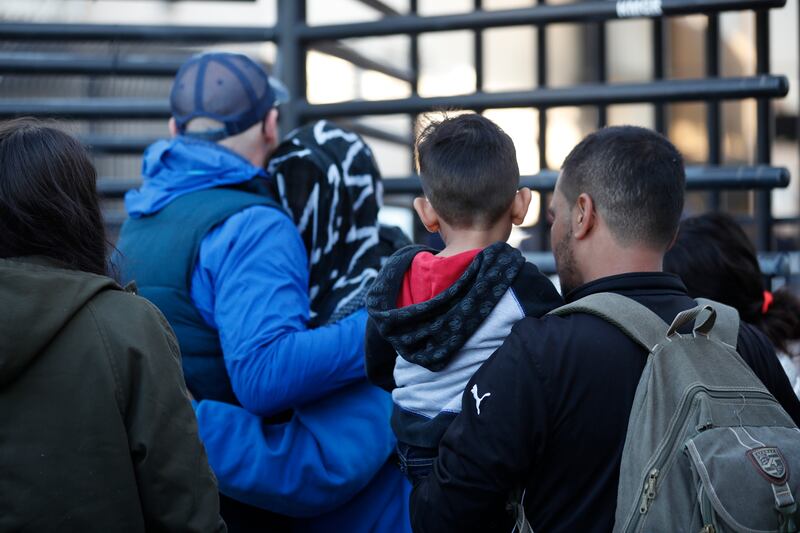Families are the foundation of society. When did it become acceptable to tear them apart?
It took nearly two decades for my father to hear back about his application to get a green card. By then he’d gotten married and had a family. He was informed that he only had three months to make a decision before the opportunity was revoked. My parents decided to take the chance. Although the following months were expensive, busy and full of interviews and paperwork, the decision has provided ample opportunity for our family that would not have been available otherwise.
That’s what immigration is about: family.
So often, when reading arguments against immigrants, refugees and asylum seekers, I see a lot of numbers; the number that should be allowed in, the number of jobs available, the number of available housing units. But at its heart, immigration isn’t about numbers. It’s about people. Families.
The 2018 American Family Survey found that the majority of people still identify themselves through their family; we tend to see ourselves as father, mother, spouse or sibling before anything else. Family is a large source of identity. It’s within the family that we learn about right and wrong, how to socialize and how to love. The family is a vital institution in our society, one that is responsible for shaping future generations and promoting our core beliefs of freedom, independence, equality and opportunity. These are the qualities that families coming to America seek.
A report released Thursday, Jan. 17, by the inspector general for the Department of Health and Human Services found thousands more immigrant children have been separated from their parents than previously reported. The majority of these separations started in mid-2017, after the "zero tolerance" policy was enforced. The policy came to an end last year, but the repercussions and effects are ongoing.
What kind of message do such actions send to the rising generation, as well as the rest of the world? One that promotes hostility over compassion. One that focuses on differences rather than commonalities. One that encourages selfishness rather than selflessness. It’s a message that adds to the storm of distrust and suspicion that has attacked nearly every part of our society.
Immigration is not an easy issue to solve. If it were, we’d have it figured out by now and not be in a record long government shutdown centered around the issue. Immigration requires a fine balance between ensuring responsible, good people are coming in and doing so in a timely manner. This isn’t a call for completely open borders — regulation and a thorough vetting of migrants is necessary — but it is a question of the methods and lack of compassion that seems to override much of our current immigration and refugee process. What kind of a people have we become if we can justify a child being taken from its mother? Perhaps it is too lofty or naive of an ideal to promote, but I believe that prosperity comes with the responsibility to help others and extend those blessings as far as possible, not selfishly put up defenses.
Immigration is not an easy issue to solve. If it were, we’d have it figured out by now and not be in a record long government shutdown centered around the issue.
America’s immigration policy has a long, often complicated history. It has never been called perfect, but it has constantly been influenced by the cultural zeitgeist and political climate. This isn’t inherently bad, but times change and adjustments become necessary when the system stops working.
In preparation for this piece, I talked to my dad about our immigration experience and all the things that went on behind the scenes that I wasn’t a part of. The process involved doctor’s appointments, flying across the country to the American embassy and many, many interviews. Yet when I asked him how he felt about the overall experience, he only had one real criticism: “I wish they didn’t treat us like criminals right from the start.”
My family didn’t trek over a thousand miles by foot and didn’t come to the country seeking asylum from corrupt governments and treacherous environments. But when it comes to the migrant crisis at the U.S.-Mexico border, many of these families have done just that. Let’s not greet them with more of the pain and suffering they are trying to escape. Surely we are better than that and can find a more compassionate and effective solution that ensures safety and still promotes our values.
The people, primarily families, seeking entrance to our country want to contribute to and encourage that very American idea of freedom of opportunity. If Americans truly value family, then immigration policy and efforts should be made with the intention of keeping them together. Keeping families together keeps society together, and should be a priority, not a convenient side effect.


